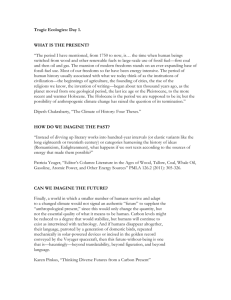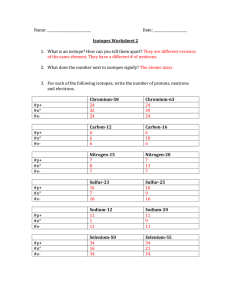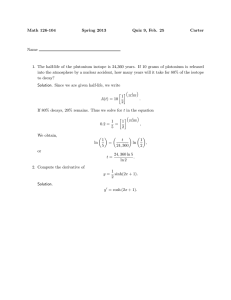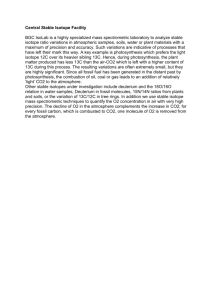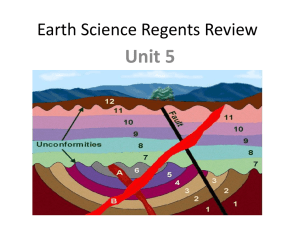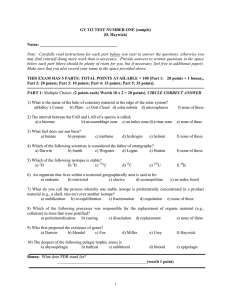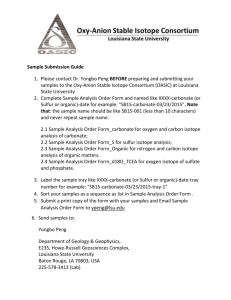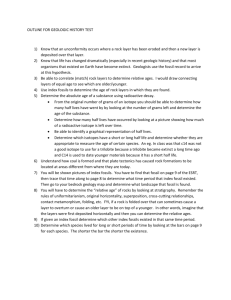Fossils and EH LT 5 and 6 Whiteboard Review with... Slide one 1. Which outcrop is the youngest? ( location 3)
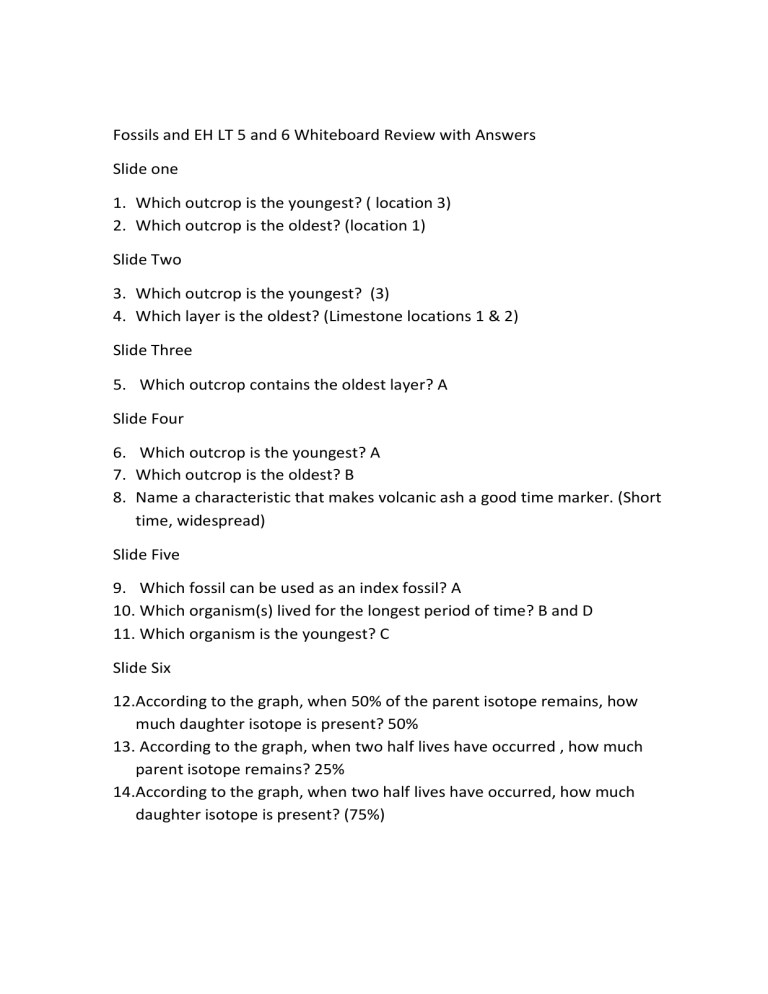
Fossils and EH LT 5 and 6 Whiteboard Review with Answers
Slide one
1.
Which outcrop is the youngest? ( location 3)
2.
Which outcrop is the oldest? (location 1)
Slide Two
3.
Which outcrop is the youngest? (3)
4.
Which layer is the oldest? (Limestone locations 1 & 2)
Slide Three
5.
Which outcrop contains the oldest layer? A
Slide Four
6.
Which outcrop is the youngest? A
7.
Which outcrop is the oldest? B
8.
Name a characteristic that makes volcanic ash a good time marker. (Short time, widespread)
Slide Five
9.
Which fossil can be used as an index fossil? A
10.
Which organism(s) lived for the longest period of time? B and D
11.
Which organism is the youngest? C
Slide Six
12.
According to the graph, when 50% of the parent isotope remains, how much daughter isotope is present? 50%
13.
According to the graph, when two half lives have occurred , how much parent isotope remains? 25%
14.
According to the graph, when two half lives have occurred, how much daughter isotope is present? (75%)
Slide Seven
15.
A fossil sample contains 3:9 parent to daughter atoms. If the isotope has a half life of 5,000 years, what is the age of the sample? (3/12 = .25) 2 x
5,000 yrs = 10,000 yrs.
16.
A fossil sample contains 2:10 parent to daughter isotopes. If the isotope has a half life of 100,000 years, what is the age of the sample? 2/12 = 16.6% or 2.6 half lives x 100,000 = 260,000 years
17.
A fossil sample contains 4 to 16 parent to daughter isotopes. If the isotope has a half life of 2 million years, what is the age of the sample? 4/20 = 20% which equals 2.2 halflives x 2 million years = 4.4 million years
18.
A fossil sample has passed through 1 half life. What fraction of the parent isotope would remain? 1/2
19.
A fossil sample has passed through 3 half lives. What fraction of the parent isotope would remain? 1/8
20.
A fossil sample has passed through 2 half lives. What fraction of the parent isotope remains? 1/4
